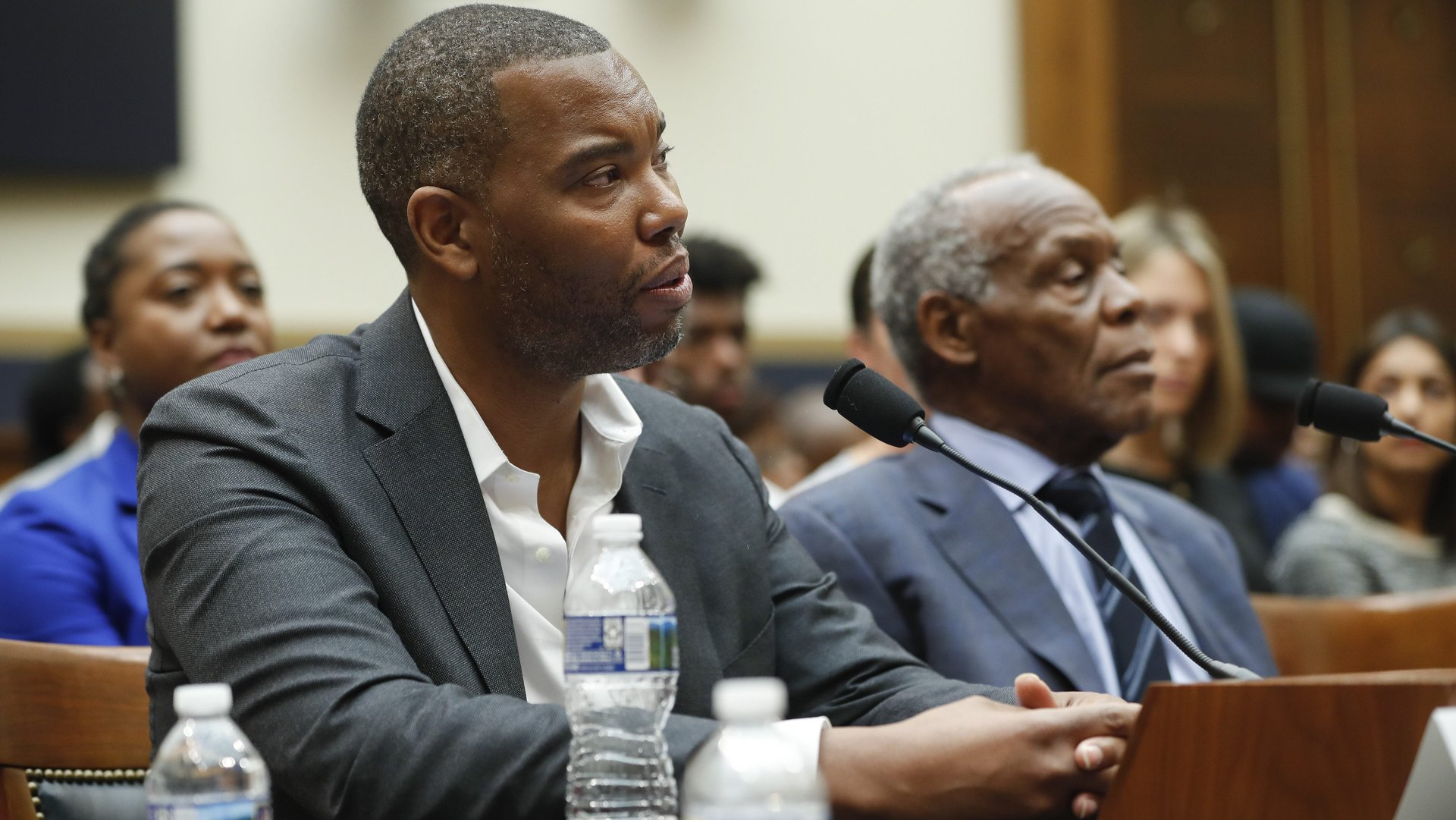Watch Ta-Nehisi Coates school Mitch McConnell on American history
The House Judiciary Subcommittee on the Constitution, Civil Rights, and Civil Liberties held a hearing on reparations for descendants of slaves today (June 19). The hearing was held on Juneteenth, the anniversary of the 1865 abolition of slavery.


The House Judiciary Subcommittee on the Constitution, Civil Rights, and Civil Liberties held a hearing on reparations for descendants of slaves today (June 19). The hearing was held on Juneteenth, the anniversary of the 1865 abolition of slavery.
The proposal to pay reparations to the African Americans whose ancestors were enslaved in the United States is more than four decades old, but it has failed to gain substantial support and momentum in Congress.
The US government has supported and paid reparations on several occasions. It helped survivors of the Holocaust get compensation, for instance, and compensated the Japanese interned in concentration camps between 1942 and 1945.
But when it comes to compensating African Americans, the list of objections is often long—from lack of financial feasibility to difficulty in determining who would be entitled to payments. Analyses have shown these concerns could be addressed, yet there has scarcely been any solid political will to push the issue forward.
Ahead of the hearing, Senate majority leader Mitch McConnell rejected the idea of reparations. “I don’t think reparations for some things that happened 150 years ago for which none of us currently living are responsible are a good idea,” he said.
Ta-Nehisi Coates, a writer and intellectual who authored an in-depth feature on reparations in 2014 and spoke at the hearing, questioned McConnell’s statement. Coates said McConnell failed to acknowledge the contemporary ramifications that slavery and racism have on American society. And he pointed out the logical shortcoming of the argument that responsibility ends within ones lifetime, noting that the country honors and respects laws and treaties that were made long before anyone alive today. Finally, Coates noted that the US government continued to deny rights to African Americans long into McConnell’s own lifetime.
Watch the full video here:
Coates broke down the enormous financial value of slavery to the United States ($3 billion in 1860, or more than 90 billion in today’s dollars) and the direct link between slavery and the current conditions of black people in America:
It is impossible to imagine America without the inheritance of slavery. As historian Ed Baptist has written, enslavement “shaped every crucial aspect of the economy and politics of America,” so that by 1836, more than 600 million, or more than half of the economic activity in the United States, derived directly or indirectly from the cotton produced by the million-odd slaves. By the time the enslaved were emancipated, they comprised the largest single asset in America: 3 billion in 1860 dollars, more than all the other assets in the country combined. The method of cultivating this asset was neither gentle cajoling, nor persuasion, but torture, rape, and child trafficking. Enslavement reigned for 250 years on these shores. When it ended, this country could have extended its hallowed principles: Life, liberty, and the pursuit of happiness to all regardless of color. But America had other principles in mind. And so for a century after the Civil War, black people were subjected to a relentless campaign of terror. A campaign that extended well into the lifetime of Majority Leader McConnell.
[…]
[I]t was 150 years ago and it was right now. The typical black family in this country has one-tenth the wealth of the typical white family. Black women die in childbirth at four times the rate of white women, and there is of course the shame of this land of the free boasting the largest prison population on the planet, of which the descendants of the enslaved make up the largest share.
The author went on to explain why paying reparations isn’t just a matter of financial compensation, but an acknowledgement of the complexity of American history:
The matter of reparations is one of making amends and direct redress, but it is also a question of citizenship. In HR 40, this body has a chance to both make good on its 2009 apology for enslavement, and reject fair-weather patriotism. To say that a nation is both its credits and its debts. That if Thomas Jefferson matters, so does Sally Hemings. That if D-Day matters, so does black Wall Street. That if Valley Forge matters, so does Fort Pillow. Because the question really is, not whether we will be tied to the “some things” of our past, but whether we are courageous enough to be tied to the whole of them.